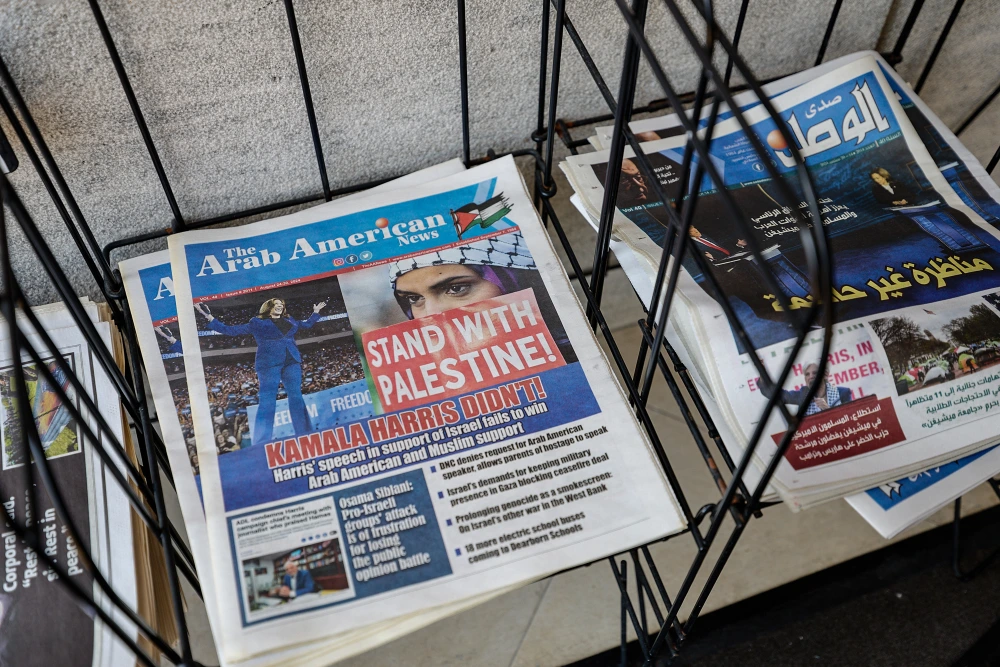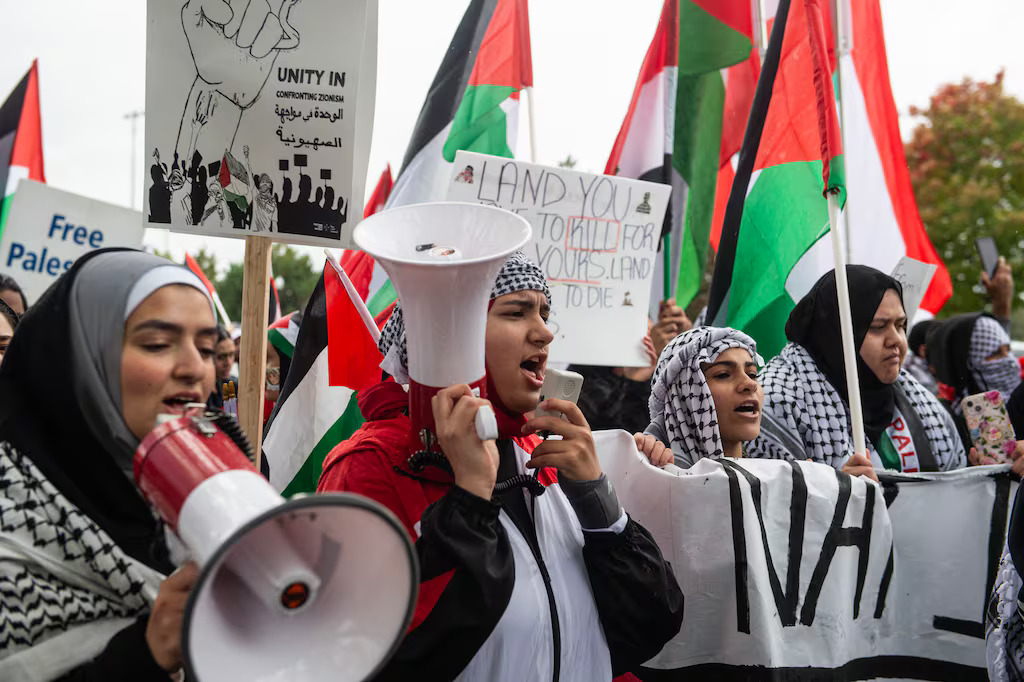Orthopedic surgeon Dr. Adam Fahs emotionally recounted his experiences treating injured Palestinians in Gaza last December, highlighting the severe lack of medical supplies and the trauma faced by patients, especially women and children. He shared a poignant observation about a cultural shift among Palestinians, where families now say goodbye every night, fearing they may not wake up.
This personal connection to the suffering in Gaza profoundly impacts Fahs, who feels disillusioned with the current political situation, believing that neither major party genuinely cares about Palestinian lives.
In Dearborn, Michigan, a city with a significant Arab American population, voters are grappling with their options as the general election approaches.
Historically a Democratic stronghold, the Arab American community is increasingly frustrated with both parties, especially regarding their stance on the ongoing conflict in Gaza. Issues like inflation and healthcare have compounded their discontent, leading many to reconsider their allegiance to either party as they seek representation that aligns with their values.
The American-Arab Anti-Discrimination Committee’s recent convention in Dearborn, known as ArabCon, showcased the frustrations of Arab Americans. Notable figures, such as novelist Susan Abulhawa, urged attendees to vote with hope rather than fear, emphasizing the need for political engagement to bring about change.
The convention served as a platform for discussions on foreign policy, with a strong focus on the war in Gaza and its implications for the community. Despite a backdrop of typical suburban life in Dearborn, the city reflects its rich Arab heritage through its diverse businesses and community engagement.

Mayor Abdullah Hammoud articulated the importance of the city as a hub for Arab American voices, while the recent Democratic primary revealed a shift in voter sentiment, with a significant portion opting for “uncommitted” in an effort to demand more from President Biden regarding Gaza. The lack of direct representation in political discourse has left many Arab Americans feeling unacknowledged.
The ongoing violence in Gaza, which has resulted in tens of thousands of deaths, weighs heavily on the minds of Arab Americans. State Rep. Alabas Farhat expressed his constituents’ concerns, viewing the situation as genocide rather than a mere conflict.
The community’s emotions were palpable at ArabCon, where merchandise supporting Palestine was prevalent, and discussions surrounding U.S. support for Israel’s military actions were common, illustrating a growing disillusionment with the Democratic Party’s foreign policy.
Activists like Maryam Hassanein, who resigned from her government position in protest, argued that change can only occur if voters express their dissatisfaction through their choices. Hassanein and others believe it is essential for candidates to earn votes rather than expecting loyalty based on party affiliation. This sentiment resonates deeply within a community that feels let down by both major parties.
Linda Sarsour, an activist, expanded the conversation beyond Gaza, stressing that Arab Americans also care about domestic issues such as healthcare and economic stability.

She underscored the importance of political candidates addressing a broader range of concerns, indicating that while Gaza is critical, it is part of a larger framework of issues affecting the community. This highlights the complexity of the Arab American identity and their diverse needs.
The trauma of U.S. foreign policy is not limited to Gaza; many Arab Americans are also deeply affected by conflicts in Yemen, Iraq, Syria, and Libya.
Personal stories, such as that of Yemeni American Mona Mawari, illustrate the far-reaching consequences of war, shaping the community’s perspective on American involvement abroad. These narratives reflect a broader skepticism toward U.S. interventions and their humanitarian implications.
As Election Day approaches, the lack of suitable options has led some in Dearborn to consider voting for third-party candidates like Jill Stein. Young voters, disillusioned with the major parties, see this as a way to express their frustrations and push for change. The Green Party’s stance on Gaza resonates with many, but there are concerns about the viability of third-party candidates in a predominantly two-party system.
Amidst this political uncertainty, some Arab Americans are contemplating support for Trump, citing the absence of new military conflicts during his administration.
This perspective highlights the complexity of voter sentiment in Dearborn, where traditional party lines are being challenged by a nuanced understanding of candidates’ past actions and their implications for the community. With the elections looming, the call for active participation remains strong, urging voters to prioritize their values and ensure their voices are heard in the democratic process.


